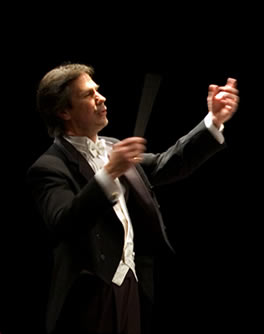Chicago Master Singers offer rare Jongen mass and other celestial delights

It isn’t every day that you get to hear a performance of Joseph Jongen’s Messe en l’honneur du Saint-Sacrement. But such is the innovative programming of Chicago Master Singers’ music director Alan Heatherington that the rarely performed mass by the Belgium composer is being presented this weekend at the Chapel of the Holy Spirit at the Society of the Divine Word in Techny.
Originally scored for large chorus with brass and organ accompaniment — there is also an organ-only version — the work was originally written in thanksgiving for the liberation of Jongen’s son from Buchenwald and in memory of Jongen’s brother, a priest at Liège Cathedral.
Despite being written during the mid-20th century, the work is unabashedly Romantic but with a contemporary flair and French sensibility.
A Credo was added in 1948 but was lost for many years and only rediscovered in its organ version which was subsequently scored in the same style by John Scott Whiteley. Heatherington and company performed the original brass and organ version with the addition of the Credo in Whitely’s arrangement.
The Ars Viva brass, particularly the trumpets, tended to dominate the sonority Friday night, often smothering the choral sound. Heatherington seemed to be carefully attempting to elicit finer balancing, sometimes having the chorus sing more loudly, but to little avail. By contrast, the electronic organ was often needlessly timid.
The full choral sections that had only brass punctuation were the most convincing sections, the Benedictus and Agnus Dei less so because of the constant use of solo voices which were struggling to keep up. Nonetheless, there were many beautiful moments and the overall impact of the piece was still effective.
With such forces at hand, the rest of the program took advantage of the assemblage. In the case of John Rutter’s Wells Jubilate, which opened the program, chimes and percussion were added and the balance between the brass and the chorus was more equalized.
Rutter’s Te Deum saw a return of the balance issues. His Cantus, which often alternated brass interludes with repetitive Alleluias that were sung antiphonally between the chorus and soprano M. Labar, proved more impressive.
Of particular interest was Rutter’s relatively new 2010 Easter anthem Most glorious Lord of life, which starts in an angular fashion but concludes with a stirring setting of the hymn The Day of Resurrection.
The highlight of the program was Ralph Vaughan Williams’ 1921 anthem Lord, thou hast been our refuge. The work utilizes an a cappella double choir, one section of which sings O God our help in ages past while the other tranquilly interpolates it before a dynamic buildup that includes organ accompaniment and a solo trumpet (Charles Geyer) intoning the hymn for a rousing climax.
There were also three settings by Kenneth Leighton, the most effective of which was the 1968 Passiontide anthem Solus Ad Vitam with its tranquil unison singing gradually expanded harmonically and dynamically to an impressive buildup yet nonetheless managing to remain introspective.
The program will be repeated 7 p.m. Sunday; chicagomastersingers.org; 800-595-4849.
Posted in Performances

